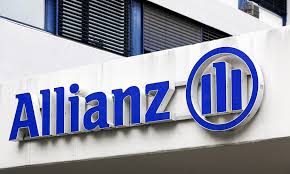Allianz Global Wealth Report 2022: South African Savings Grew By 15.4% In 2021

* Three times lucky: For the third year in a row, global financial assets grew by double-digits in 2021, reaching EUR 233trn (+10.4%)
* Turning point: In 2022, a nominal decline by more than 2% is on the cards – in real terms, households will lose a tenth of their wealth
* The return of debt: Household debt increased by 7.6% in 2021, the fastest increase since before the Global Financial Crisis (GFC)
* Record growth: South African savings grew by 15.4% in 2021, clocking the fastest increase since the GFC.
Today, Allianz unveiled the 13th edition of its “Global Wealth Report”, which puts the asset and debt situation of households in almost 60 countries under the microscope.
The last hurrah
In retrospect, 2021 might have been the last year of the old “new normal”, with bullish stock markets powered by monetary policy. Households benefitted handsomely: For the third year in a row, global financial assets[1] grew by double-digits in 2021, reaching EUR 233trn (+10.4%). In these last three years, private wealth increased by a staggering EUR 60trn. This amounts to adding two eurozones to the global financial pile.
Three regions stood out in asset growth: Asia ex Japan (+11.3), Eastern Europe (12.2%) – and North America (+12.5%): As in the two previous years, the richest region of the world – with gross financial assets per capita amounting to EUR 294,240 against a global average of EUR 41,980 – clocked emerging market-like growth rates. On the other hand, Western Europe (EUR 109,340) behaved more like a mature, rich region, with growth at 6.7%.
The main growth driver was the stock market boom, contributing around two-thirds to wealth growth in 2021 and propelling the asset class of securities (+15.2%). Fresh savings, however, remained elevated, too. Despite dropping by around 19% in 2021, with EUR 4.8trn they came in at still 40% above the level seen in 2019.
The composition of savings, too, changed, albeit only slightly: Bank deposits’ share fell but with 63.2% they remained by far the preferred asset class of savers; on the other hand, securities as well as insurance & pensions found increasing favor with savers, but their shares in fresh savings were much smaller, with 15.1% and 17.4%, respectively. Reflecting these dynamics, global bank deposits grew by “only” 8.6% in 2021, still the second largest increase on record (after the 12.5% jump in 2020). Insurance & pension fund assets showed much weaker development, rising by 5.7%.
Turning point
2022 marks a turning point. The war in Ukraine choked the recovery post-Covid-19 and turned the world upside down: Inflation is rampant, energy and food are scarce, and monetary tightening squeezes economies and markets. Households’ wealth will feel the pinch. Global financial assets are set to decline by more than 2% in 2022, the first significant destruction of financial wealth since the Global Financial Crisis (GFC) in 2008. In real terms, households will lose a tenth of their wealth. But in contrast to the GFC which was followed by a relatively swift turnaround, this time the mid-term outlook, too, is rather bleak: Average nominal growth of financial assets is expected to be at 4.6% until 2025, compared with 10.4% in the preceding three years.
“2021 brings an era to an end,” said Ludovic Subran, chief economist of Allianz. “The last three years were nothing but extraordinary. It was a bonanza for most savers. Not only 2022 but the coming years will be different. The cost-of-living crisis puts the social contract to the test. Policymakers face the enormous challenge to master the energy crisis, secure the green transformation and spur growth while monetary policy hits the brakes hard. There is no more room for policy mistakes. Key for success are innovative and targeted measures at the national, and European unity at the supranational level.”
The return of debt
At the end of 2021, global household debt stood at EUR 52trn. The annual increase of +7.6% vastly outpaced the long-term average of +4.6% and 2020’s growth of +5.5%. The last time higher growth was clocked was in 2006, well before the GFC. However, due to the sharp increase in nominal output, the global debt ratio (liabilities as a percentage of GDP) even fell to 68.9% (2020: 70.5%).
The geographic allocation of debt has changed since the last crisis. While the share of advanced markets is in decline – the US share, for example, dropped by ten percentage points to 31% since the GFC –, emerging economies account for an ever-rising portion of global debt, first and foremost Asia (excluding Japan): its share has more than doubled over the past decade to 27.6%. “The sharp increase in debt at the onset of a global recession is worrying,” said Patricia Pelayo Romero, co-author of the report. “In emerging markets, households’ debt has increased with double-digit growth rates over the past decade, more than five times the speed seen in advanced economies. Still, overall debt levels seem manageable, but given the strong structural headwinds these markets are facing, there is a real threat of a debt crisis.”
Record growth
The gross financial assets of South African households rose by a strong 15.4% in 2021 to reach EUR 690bn, the fastest increase since the GFC and well above its 10-year average of 8.0%. Part of the explanation is inflation which averaged 4.5% in 2021; yet, the increase in real wealth remains remarkable. All asset classes contributed to the strong performance: bank deposits grow by 8.6% last year, securities by a whopping 20% and insurance and pensions assets by 14.7%; the latter asset class remains by far the most popular in South Africa, with a portfolio share of 56%. Bank deposits, on the other hand, which play a dominant role in most other emerging markets, have only a share of 13%.
Liabilities’ growth, too, accelerated in 2021, clocking in a 6.3% increase in South Africa, slightly above the long-term average of 5.7%. The debt ratio (liabilities in % of GDP), however, dropped to 42%, thanks to strong economic activity. Finally, South African households’ net wealth grew by 18.1%, reaching EUR 550bn. With net financial assets per capita of EUR 9,220, South Africa climbed one rung to place 39 in our ranking of the 20 richest countries (financial assets per capita, see table). Although wealth growth in South Africa remains relatively robust, there is a (huge) drop of bitterness: In no other country in our sample, the wealth concentration is higher: the top 10% of the wealth pyramid own 85% of all net financial assets (against an unweighted average of 62%).
In South Africa, Allianz Group offers corporate & specialty insurance through Allianz Global Corporate & Specialty, travel insurance via Allianz Travel and trade credit insurance through Allianz Trade.





